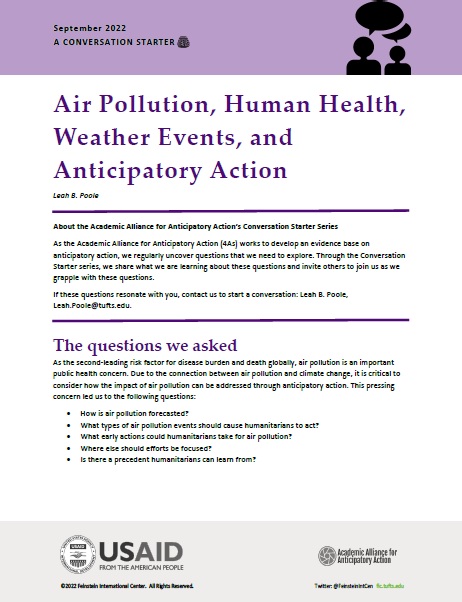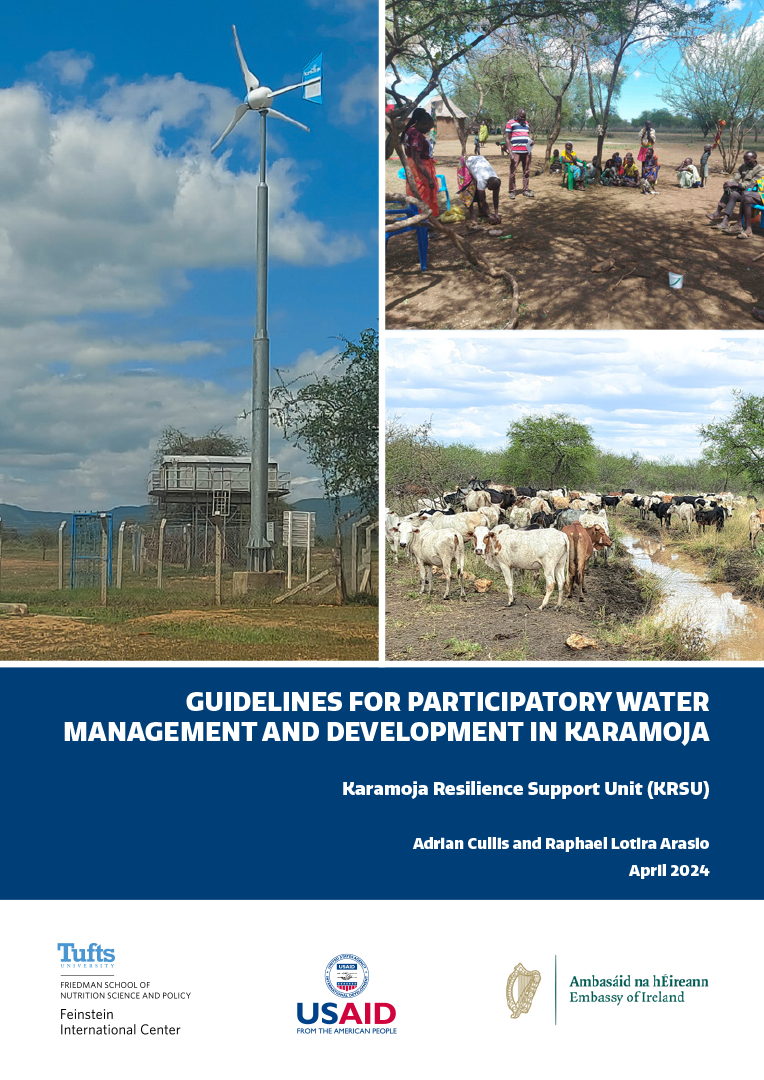As the second-leading risk factor for disease burden and death globally, air pollution is an important public health concern. Due to the connection between air pollution and climate change, it is critical to consider how the impact of air pollution can be addressed through anticipatory action. This pressing concern led us to the following questions, which we begin to answer in this paper:
- How is air pollution forecasted?
- What types of air pollution events should cause humanitarians to act?
- What early actions could humanitarians take for air pollution?
- Where else should efforts be focused?
- Is there a precedent humanitarians can learn from?
Through this Conversation Starter, the Academic Alliance for Anticipatory Action shares what we learned and invite those who are also thinking about anticipatory action join us to grapple with these questions.
About the Academic Alliance for Anticipatory Action’s Conversation Starter Series
As the Academic Alliance for Anticipatory Action (4As) works to develop an evidence base on anticipatory action, we regularly uncover questions that we need to explore. Through the Conversation Starter series, we share what we are learning about these questions and invite others to join us as we grapple with these questions.
If these questions resonate with you, contact us to start a conversation: Leah B. Poole, Leah.Poole@tufts.edu.







